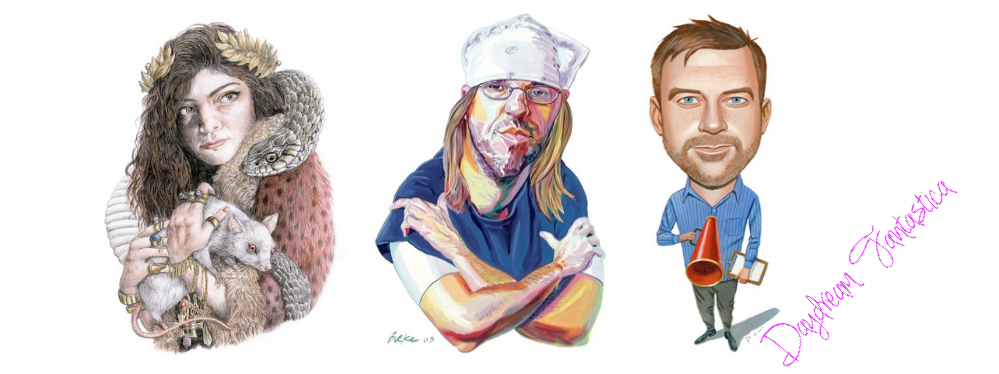The fact that Albarn's turned out to be a crank shouldn't be that surprising (doesn't everyone?), although the only reason his cynicism doesn't ruin the whole album is that he seems to know how old the whole fear-the-future thing is. The lyrics are all Kubrickian-style future warnings, only for the future we're all living in right now. It would be enough to say that Albarn's ran out of ideas and is just complaining for the sake of complaining if his misery over all of us internet obsessed, technology-for-happiness, TV whore robots wasn't so consistent - just look at some of the lyrics (all from different songs):
We are everyday robots on our phones/In the process of getting home
Hoping to find the key/To this play of communications/Between you and me
When I'm lonely, I press play
When the photographs you're taking now are taken down again/When the heavy clouds that hide the sun are goneIt all sounds a bit depressing in theory, although just look at that last example: comparing the pictures on your Facebook to clouds stopping you from seeing the sun. There's a romance to the whole album. It's like an acceptance that technology's already corrupted us all and it's here to stay so the best someone like Albarn could do now is salvage some playful tunes from the rubble. Radiohead might have made a similar album in the late 90s if they'd cared more about the music than the message - sadly they didn't (still don't - even more so now); Albarn does.
The music here is slow; backing tracks built on slushy, mellow beats. The sort of tracks you can't quickly dash on to see if you like them or not because they offer no immediate satisfaction - the arrangements are slowly building beats which only really work when looked at as part of a three, four minute long track. Seven minute track You and Me brings to mind The Stone Roses, who were great at building funky, endlessly repeating rhythms that worked (where most artists struggle the most) in longer tracks. The best track is Mr Tempo, so out of place optimistic it sounds like a digitized Bob Marley reborn on the internet, it even has the sort of simplistic, just-happy-to-be-alive type rhyme at its center that Marley would have given us: "Mr. Tempo is on his way up the hill/With only this song to tell you how he feels/But to get there he will need a helping hand/It's where he is now but it wasn't what he planned". It's a sign that Albarn's too big in scope for any of us to see him whole, and third career around he's still the best at whatever it is exactly he's doing.


